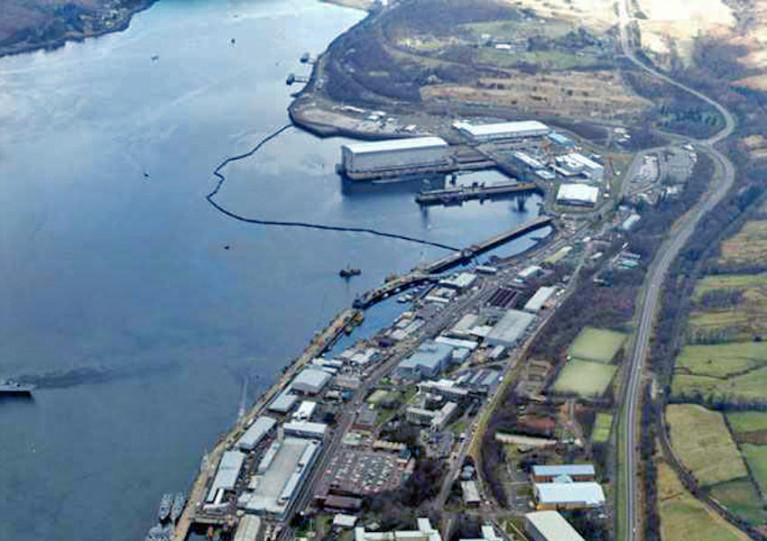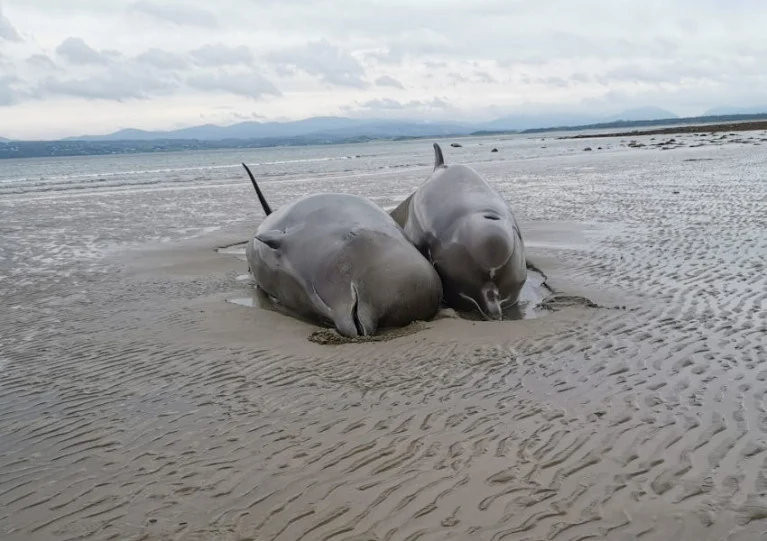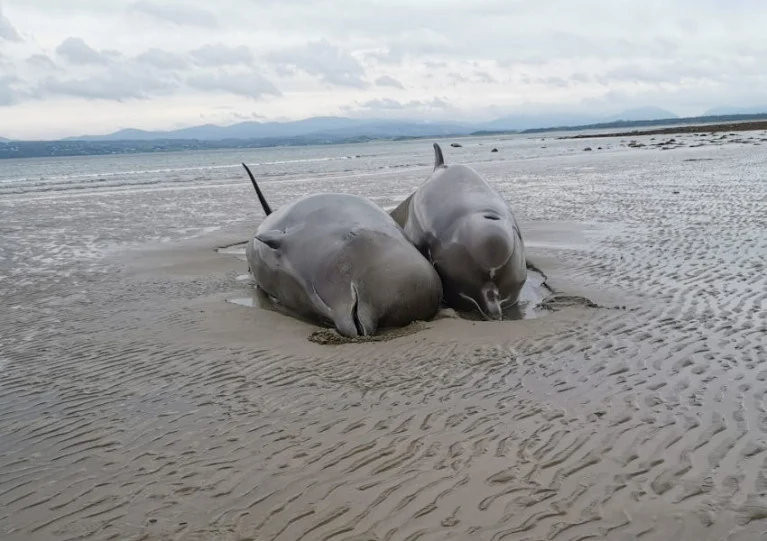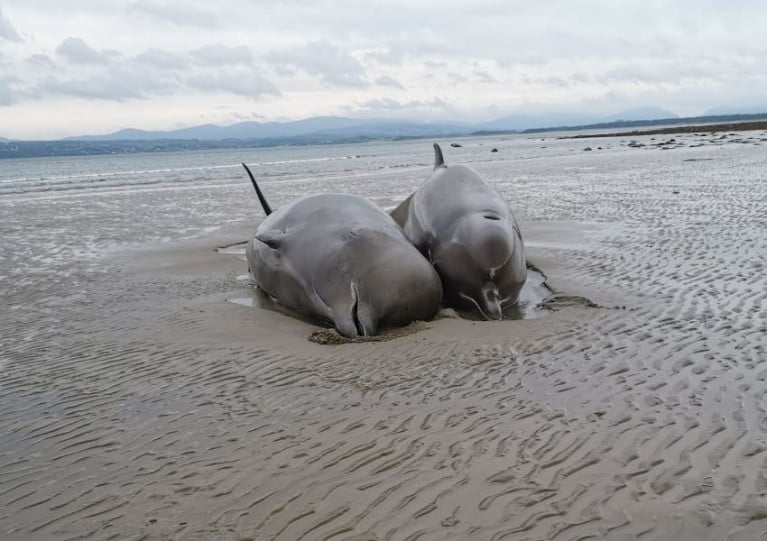Displaying items by tag: Bottlenose Whales
Three northern bottlenose whales were the subject of special rescue operation in Western Scotland yesterday (Thursday 1 October) as boats worked to guide them out to sea ahead of a major military exercise.
As the Guardian reports, rescue teams led by British Divers Marine Life Rescue formed a barrier with their boats as they coaxed the whale pod towards the Firth of Clyde and away from Loch Long, near the Faslane naval base west of Glasgow that will host the international Joint Warrior exercise next week.
The deep-water beaked whales, which are rarely seen in inshore waters, have been monitored in the area over the past month — with observers expressing concern over the health of one of the trio, even aside from their sensitivity to underwater sounds, according to BBC News.
The whales are of the same marine wildlife species that died in a stranding in Donegal this past August which was described as the largest of its kind in Ireland, as previously reported on Afloat.ie.
It has emerged that the deadly mass stranding of bottlenose whales in Donegal was preceded by two live strandings in the Faroe Islands two days prior.
And it’s led experts at the Irish Whale and Dolphin Group (IWDG) to suggest the marine wildlife incidents might be linked and “part of a much wider event”.
The group adds that images of two Northern bottlenose whales — of the same species that died in Donegal — were captured the next day in Scotland as far inshore as Greenock Harbour, on the Clyde west of Glasgow.
More recently, two of the deep water cetaceans have been seen in the North Sea off Norfolk, and two others were spotted at the Netherlands’ Eastern Scheldt.
“Clearly something is happening to this group of whales we know so little about,” the IWDG says, adding that the situation also “demonstrates the need for a response protocol” for similar strandings in Ireland.
No Sign Of One Animal From Deadly Bottlenose Whale Stranding
One of the victims of a deadly mass stranding of bottlenose whales in Donegal last week has not reappeared, according to Highland Radio.
Seven of the marine mammals died in the biggest mass stranding of its kind on record in Ireland, as previously reported on Afloat.ie.
The eighth whale was refloated in the shallows when the tide came in, and hopes were that it would make to back to deeper waters on its own. However it was confirmed to have died the following morning, Thursdasy 20 August.
Local volunteers with the Irish Whale and Dolphin Group (IWDG) have appealed for the public to report any possible sightings, as they are keen to get samples which might reveal more details about the whale pod and its sudden demise.
Elsewhere, rare video has been captured of the humpback whale known as ‘Boomerang’ off West Cork, as RTÉ News reports.
The whale is the third humpback in the IWDG’s records. It was first identified in 2001 thanks to its unique dorsal fin, and has returned to feed in Irish waters regularly over the last two decades.
This story was updated on Monday 31 August to correct details about the refloated bottlenose whale, which was not presumed to have survived as the previous version stated.
Seven Bottlenose Whales Die On Donegal Beach In Ireland’s ‘Largest Mass Stranding’ Of Species
Seven northern bottlenose whales have died in what’s been described as the largest mass stranding of its kind in Ireland.
The Irish Whale and Dolphin Group (IWDG) confirmed the deaths to RTÉ News after the incident was reported on Rossnowlagh beach yesterday, Wednesday 19 August.
However, it was hoped that the eighth whale, which refloated in the shallows after the tide came in, would make it back to deeper waters of its own accord.
One whale seen here lifting its head to breathe has refloated itself and swam out with the incoming tide. We are cautiously optimistic it will make it out but IWDG will standby and check to see if it restrands. Video by Nicola Coyle/IWDG pic.twitter.com/8NRzsBPBQu
— Irish Whale and Dolphin Group (@IWDGnews) August 19, 2020
The IWDG urged the public to keep their distance from the whales after “upsetting news” that crowds had formed to take selfies next to the distressed marine wildlife.
“We know very little about them, but they are prone to mass strandings,” IWDG chief executive Simon Berrow told TheJournal.ie. “This is the largest mass stranding of this species ever in Ireland.”
Live stranding of a group of Northern Bottkrnose Whales at Rossknowlagh, Co Donegal this morning. Very little that can be done for these deep-diving offshore species. Please give them space and respect to die without too much stress. Trained IWDG members and NPWS on site. pic.twitter.com/oIjpSBpAKD
— Irish Whale and Dolphin Group (@IWDGnews) August 19, 2020
































































